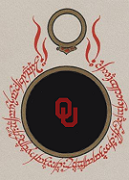|
FreudianSlippers posted:Neolithic peoples would've lived the Ford F-150. Neolithic peoples would have hunted the F-150.
|
|
|
|

|
| # ? Apr 27, 2024 00:12 |
|
Cyrano4747 posted:Neolithic peoples would have hunted the F-150. hunting something with headlights sounds easy until it's not
|
|
|
|
They hunted the woolly unextended cab into extinction.
|
|
|
|
zoux posted:They hunted the woolly unextended cab into extinction. Look, there is limited evidence of human hunting leading to the extinction of the woolly unextended cab, climate change and changing fuel availability likely had as big an impact if not more.
|
|
|
|
Grand Fromage posted:Happy 2772, nerds. No gently caress you
|
|
|
|
Bum the Sad posted:No gently caress you Iím planning on being in Italy in April next year. Are there actual celebrations for this anniversary or is it just too obscure?
|
|
|
|
double post
|
|
|
|
On the chariot discussion a bit ago, a friend reminds me that horses, especially breeds not strong enough to reliably ride, only can pull so much, and chariots, especially when you want them armoured and the best metal you have is bronze, are heavy. Two dudes is about the practical limit, probably.
|
|
|
|
Ghost Leviathan posted:On the chariot discussion a bit ago, a friend reminds me that horses, especially breeds not strong enough to reliably ride, only can pull so much, and chariots, especially when you want them armoured and the best metal you have is bronze, are heavy. Two dudes is about the practical limit, probably. We have, amazingly, actual for real bronze age chariots that still exist. The one that I remember the mass of off the top of my head is 35kg.
|
|
|
|
Tulip posted:We have, amazingly, actual for real bronze age chariots that still exist. The one that I remember the mass of off the top of my head is 35kg. Thatís seriously impressive that itís that light.
|
|
|
|
Bar Ran Dun posted:Thatís seriously impressive that itís that light. https://www.nbcnews.com/id/wbna38545625 According to the Egyptian History Podcast (which is done by an actual Egyptologist), the frame would have been covered in leather originally.
|
|
|
|
Also makes sense that you'd want to minimise weight on those things, even if you had bronze or iron (the latter famously stronger than Old Testament God) you'd probably want just enough to armour the important bits.
|
|
|
|
The chariot being made of wood as opposed to flesh makes it quite durable enough.
|
|
|
|
Ghost Leviathan posted:Also makes sense that you'd want to minimise weight on those things, even if you had bronze or iron (the latter famously stronger than Old Testament God) you'd probably want just enough to armour the important bits. wood is a tremendously useful material that is very strong and has some nice compression and rebound characteristics
|
|
|
KYOON GRIFFEY JR posted:wood is a tremendously useful material that is very strong and has some nice compression and rebound characteristics
|
|
|
|
|
Ghost Leviathan posted:On the chariot discussion a bit ago, a friend reminds me that horses, especially breeds not strong enough to reliably ride, only can pull so much, and chariots, especially when you want them armoured and the best metal you have is bronze, are heavy. Two dudes is about the practical limit, probably. I mean, the Battle of Ulai relief shows chariots with at least five dudes in them. Also horse archers, so I guess they had stronger horses by then. https://commons.wikimedia.org/wiki/File:Battle_of_Ulai_(composite).jpg
|
|
|
|
Bar Ran Dun posted:Thatís seriously impressive that itís that light. It's a shame that chariot makers (as in, the specific profession, not the cultures that used chariots) haven't left us any written records that I'm aware of, because drat they must have been some intense people who took their craft incredibly seriously. My understanding has generally been that chariots were mostly tools of reconnaissance, command, and control, with "actually killing opposing soldiers" being a pretty tertiary concern (the symbolism of making sure that military aristocrats were visibly at war and literally elevated being well above that). Having a better idea of where the enemy is and being more able to control the movements of your own army are incredibly important. Of course my understanding is somewhat inflected by the area I know better (China), where "chariot" is often used in the same way that "banner" might be used in a medieval army - you're not supposed to think that "he brought 50 chariots" refers exclusively to "50 physical chariots," but "50 chariots, plus the amount of peasant infantry you'd expect to be under the command of an aristocrat in a chariot." Like metonymy for a formation/unit.
|
|
|
|
The ancient Celts, IIRC, used charioteers as much-later armies would use dragoons - they'd transport the wealthy, best-armored soldiers to the battlefield and they'd dismount to fight as infantry. So there are a lot of ways chariots were used, worldwide.
|
|
|
|
Kylaer posted:The ancient Celts, IIRC, used charioteers as much-later armies would use dragoons - they'd transport the wealthy, best-armored soldiers to the battlefield and they'd dismount to fight as infantry. So there are a lot of ways chariots were used, worldwide. This gave me the mental image of Ford Transit vans dropping off be-woaded Celtic warriors in front of some lined up Roman Legions.
|
|
|
|
Tulip posted:It's a shame that chariot makers (as in, the specific profession, not the cultures that used chariots) haven't left us any written records that I'm aware of, because drat they must have been some intense people who took their craft incredibly seriously. The Hittites famously employed chariots as shock cavalry, but this was considered a remarkably novel tactic by their contemporaries.
|
|
|
|
Egyptians did too at least a few times. But there's a reason that, as far as I know, literally everyone abandons chariots in favor of cavalry once they're able to.
|
|
|
|
Which is why the Wheels suck because they enslaved the horse god rather than befriending her and that's why I'm gonna raid the poo poo out of them. wait gently caress wrong thread.
|
|
|
|
Benagain posted:Which is why the Wheels suck because they enslaved the horse god rather than befriending her and that's why I'm gonna raid the poo poo out of them. No I'm with you on this one, gently caress the Wheels.
|
|
|
Tulip posted:(the symbolism of making sure that military aristocrats were visibly at war and literally elevated being well above that). It's weird how it took so long before people realized that that is a terrible idea. To have your leader exposed like that, fully knowing that your army will collapse if he's killed and leaving your country without someone in charge.
|
|
|
|
|
Alhazred posted:It's weird how it took so long before people realized that that is a terrible idea. To have your leader exposed like that, fully knowing that your army will collapse if he's killed and leaving your country without someone in charge. How are you going to kill him when he is zooming around 20 kmph in his chariot?
|
|
|
Alhazred posted:It's weird how it took so long before people realized that that is a terrible idea. To have your leader exposed like that, fully knowing that your army will collapse if he's killed and leaving your country without someone in charge. I mean I don't think it was a terrible idea? People were making these choices in the context of the political society they were operating in, and I don't think it would have persisted for as long as it did were it a bad idea. There's value in a lot of these political systems for the leader to be seen leading. Alexander didn't just change in because he alone was able to identify the point of weakness, it was also very important for Macedonian kings to be seen leading from the front. Your army might collapse if you die, but if it will definitely collapse if the aristos and kings aren't performing their role, it's a sensible risk to take.
|
|
|
|
|
Alhazred posted:It's weird how it took so long before people realized that that is a terrible idea. To have your leader exposed like that, fully knowing that your army will collapse if he's killed and leaving your country without someone in charge. there's a lot of assumptions in here that aren't really always true. In a lot of military systems, leading from behind didn't really even function--a greek general commanding hoplites, for instance, couldn't really do anything once battle was joined from the rear, but from the front, he could be a visible rallying point to keep morale high. In fact, the army might collapse if he isn't on the front lines--that's a sure sign that your general thinks this battle is likely to get a huge chunk of the army killed. Anyone would be more likely to break and try to run in that situation. Then you have to account for the fact that communication is hard before the radio, and if you want to communicate a battle plan, the best place to do it is within shouting distance of your troops. Alexander was certainly brazen, but the head of the cavalry charge was the right place for the decision-maker to be in his battle plans, because that was the position that could guide the "moving part" of the battle--his tactics required split-second decisions by the cavalry which had to be acted upon in unison, and by far the best way to communicate those decisions was to have the decision maker in front and just tell the other guys to follow him. You could delegate this to someone who is less important to the peacetime running of the country--and many countries did. But that's hardly a recipe for ensuring your country doesn't collapse. A popular, victorious general would often turn around from his campaigns and make a bid for the throne, and by leaving the king at home you replaced one danger (the king dying in battle) with another (civil war). And even then, if you have a general you trust absolutely not to try to usurp you, you're giving up an opportunity for legitimacy building, to sell to the people on whose support your kingdom depends the idea that you are a competent king, someone worthy of obedience--and someone you don't want to cross by rebelling. The king on his chariot, visible to the entire army, making sure everybody sees him leading the army, is a king people will put their trust in. After all, he just won you the war! (and if he didn't win, you have bigger issues) You do get systems of war even in the ancient world where the general was capable of having a meaningful influence over the battle from a distance, and where this was more meaningful than inspiring the troops by sharing their danger. Roman generals tended to hang back and make the decision of when and where to deploy the reserves. But even Caesar knew that sometimes the best way to influence the battle was to pick up a sword and join the front lines.
|
|
|
|
KYOON GRIFFEY JR posted:wood is a tremendously useful material that is very strong and has some nice compression and rebound characteristics Yeah your mom got pretty carried away examining the rebound characteristics of wood last night steinrokkan fucked around with this message at 10:59 on Jun 6, 2023 |
|
|
|
Alhazred posted:It's weird how it took so long before people realized that that is a terrible idea. To have your leader exposed like that, fully knowing that your army will collapse if he's killed and leaving your country without someone in charge. Why do you think the army will collapse if the king dies on the field and the country won't have anyone in charge? There are plenty of examples of kings or heirs dying in combat and it not leading to a route or collapse of the kingdom. Hell, even more of generals dying on the field. This isn't an RTS, your units don't all suffer a -50 morale and cohesion penalty because the guy with the fancy hat got got. It's a thing that happened often enough that there's an entire wikipedia entry for "monarchs killed in action". Most of the ones where the country/tribe/whatever falls to poo poo afterwards it's kind of the final straw that tips over an already wobbly political situation - Harold II during the Norman conquest of England for example - and even if they'd survived they probably would have lost their crown. Generally the pattern is the king dies, people figure out succession, and then that happens with all the usual courtly intrigue that succession normally has. Sometimes the kingdom fractures because the king had a bunch of sons and that's how inheritance worked, sometimes it doesn't, rarely does it lead to full on dynastic collapse, even more rarely does it lead to a full on political collapse where the kingdom stops being an entity. Richard I, for example, died without heirs when a crossbow wound got infected and his brother John took the English crown with pretty much zero drama.
|
|
|
|
Like 90% of the army wouldn't even know if the leader died because they couldn't see him
|
|
|
|
Grand Fromage posted:But there's a reason that, as far as I know, literally everyone abandons chariots in favor of cavalry once they're able to. Eventually, but there were places it took a while. Chariots were associated with aristocratic prestige in early Warring States China whereas cavalry came from the barbarians; it took centuries for it to catch on. The fact cavalry had a militarily fairly minor role probably played into that though.
|
|
|
|
I don't know how many of you guys read the other history thread, but I think the consensus is that old timey leaders led from the front was because old-timey war was fun!
|
|
|
|
Koramei posted:Eventually, but there were places it took a while. Chariots were associated with aristocratic prestige in early Warring States China whereas cavalry came from the barbarians; it took centuries for it to catch on. I love the recurring theme throughout history of "there's this technologically superior thing the barbarians have that we could also have, but we won't because it's barbarous." Like pants.
|
|
|
|
The nature of war at that time and aristocracy and government kinda meant that there wouldn't be much meaning in the battle if the proper leader wasn't involved. You don't personally get glory from combat that you refuse to actually be in. Your troops have no reason to respect you if you won't do any fighting yourself. Sometimes the nature of these things is even on a much more personal level, where the soldiers involved aren't loyal to some abstract entity like a country, or some overall idea the war is about, it's about being there for the sake of the one guy leading your side, and if he's got getting in, you're not getting in either. And then if you zoom out, much of the organizational system of the medieval era came from warlords whose families took power from their authority leading battles. Vikings led their own raiding groups, Franks were commanders of armies roaming around the late Roman Empire. The Roman Emperors got their authority from personal credibility commanding armies, and couldn't actually risk letting anyone else important command major offensive for risk that someone else commanding an army doing important things would use their credibility from that to unseat the Emperor. You can't get that from refusing to be involved when a battle starts, and if you try to delegate to somebody else less important, they suddenly become more important than you.
|
|
|
|
For a comparison of chariot usage, the celts/gauls used them pretty extensively in 2 ways. 1 was to just deliver warriors to the front, so the nobles and their entourages would have chariots that rode them up to the battle, and would also take them back from the front of they were injured or to rotate out and rest. To go with their second use, along the way they would harass the enemy with javelins and maybe bows (not sure on that one but obviously they had hunting bows) . I think dedicated skirmishers with chariots were also a thing for them, outside of nobles using them as battle taxis. I have read about this but it was forever ago so I'm hoping this is not too corrupted by total war games.
|
|
|
|
I know that in the Late Bronze Age Near East, which is kind of the golden age of the chariot, they were largely missile platforms. Egyptian and Hittite chariots were super light, two horse things with pretty sophisticated suspension systems that provided a stable and very fast platform for shooting your bow. They were around kind of at the same time that actually riding horses rather than using them as draft animals is starting to proliferate, and they remained in use for quite a while, so they must have been good for something. I think that I've read that the later Persian scythed chariots might have been a specialized anti-nomadic horse archer weapon, but I don't remember the details or know how that would have worked.
|
|
|
|
Koramei posted:Eventually, but there were places it took a while. Chariots were associated with aristocratic prestige in early Warring States China whereas cavalry came from the barbarians; it took centuries for it to catch on. Were they used in battle though? Chariots are around, the Romans use them for ceremony and stuff, but as implements of war they just kind of suck. Plus they're expensive since they require more horses than cavalry. Which would play into prestige use I suppose.
|
|
|
|
Does cavalry really use less horses? Don't most mounted soldiers use multiple animals? Although that said, I assume a chariot might also have multiple teams of horses, so maybe it's a moot point. E: spelled a lot of words poorly on my phone. Cavalry does not ride hoses. Jamwad Hilder fucked around with this message at 17:51 on Jun 6, 2023 |
|
|
|
I would think the wheels are probably a pain in the rear end
|
|
|
|

|
| # ? Apr 27, 2024 00:12 |
|
Jamwad Hilder posted:Does cavalry really use less hoses? Don't most mounted soldiers use multiple animals? Although that said,, I assume a chariot might also have multiple teams of hoses, so maybe it's a moot point. Exactly. I think every chariot uses at least two horses, plus they're going to need spares like cavalry and you're adding on a need for spare parts for the chariot and trained artisans to do repairs. The main advantage I can think of is that a horse archer needs a lot of training and a somewhat specialized bow, while I imagine a regular archer learning to shoot from a chariot would take some practice but be much easier. Also I bet at the time nobody thought you could even shoot from horseback effectively since the whole riding horses thing was still new. Grand Fromage fucked around with this message at 17:09 on Jun 6, 2023 |
|
|


















































